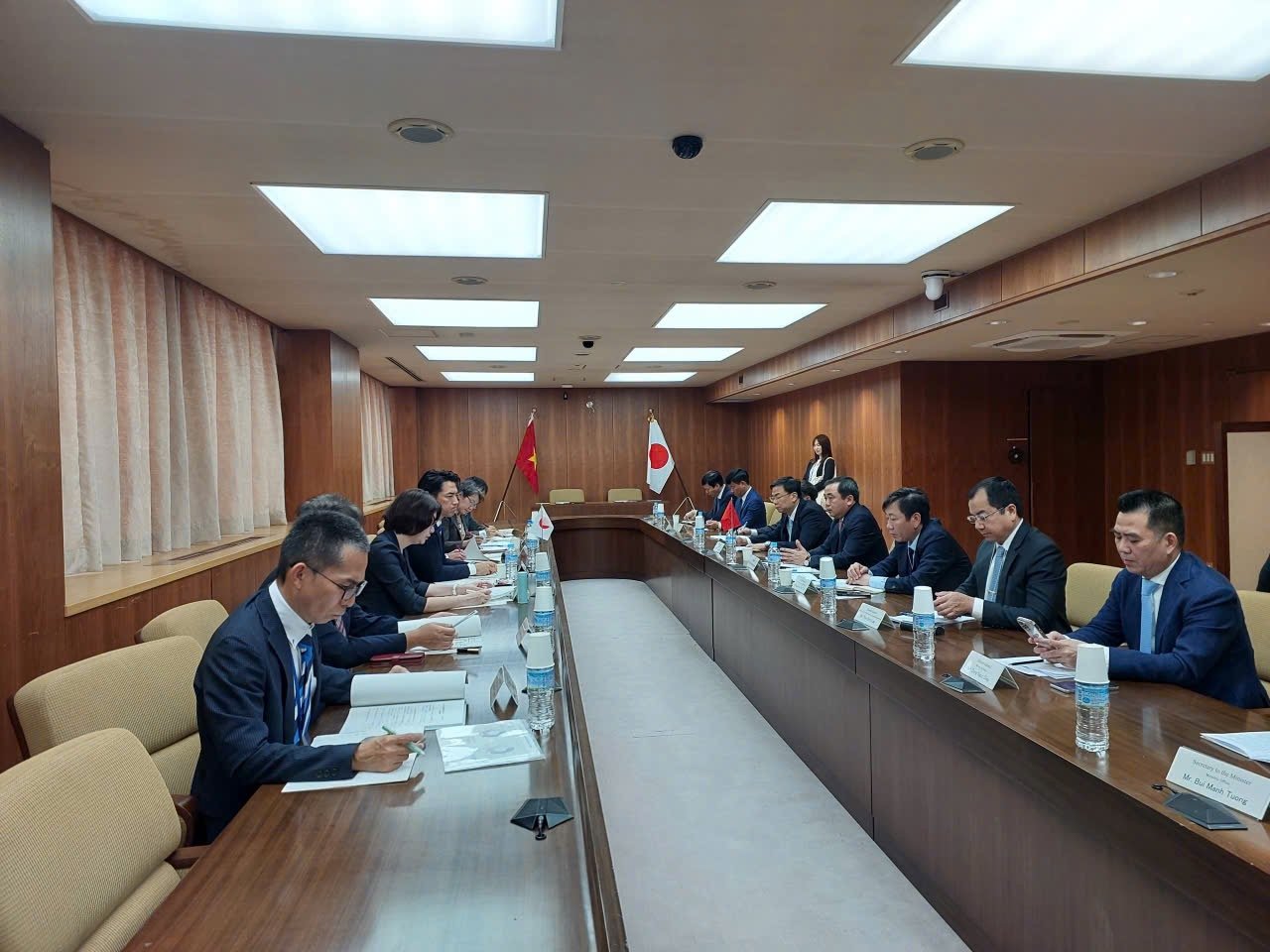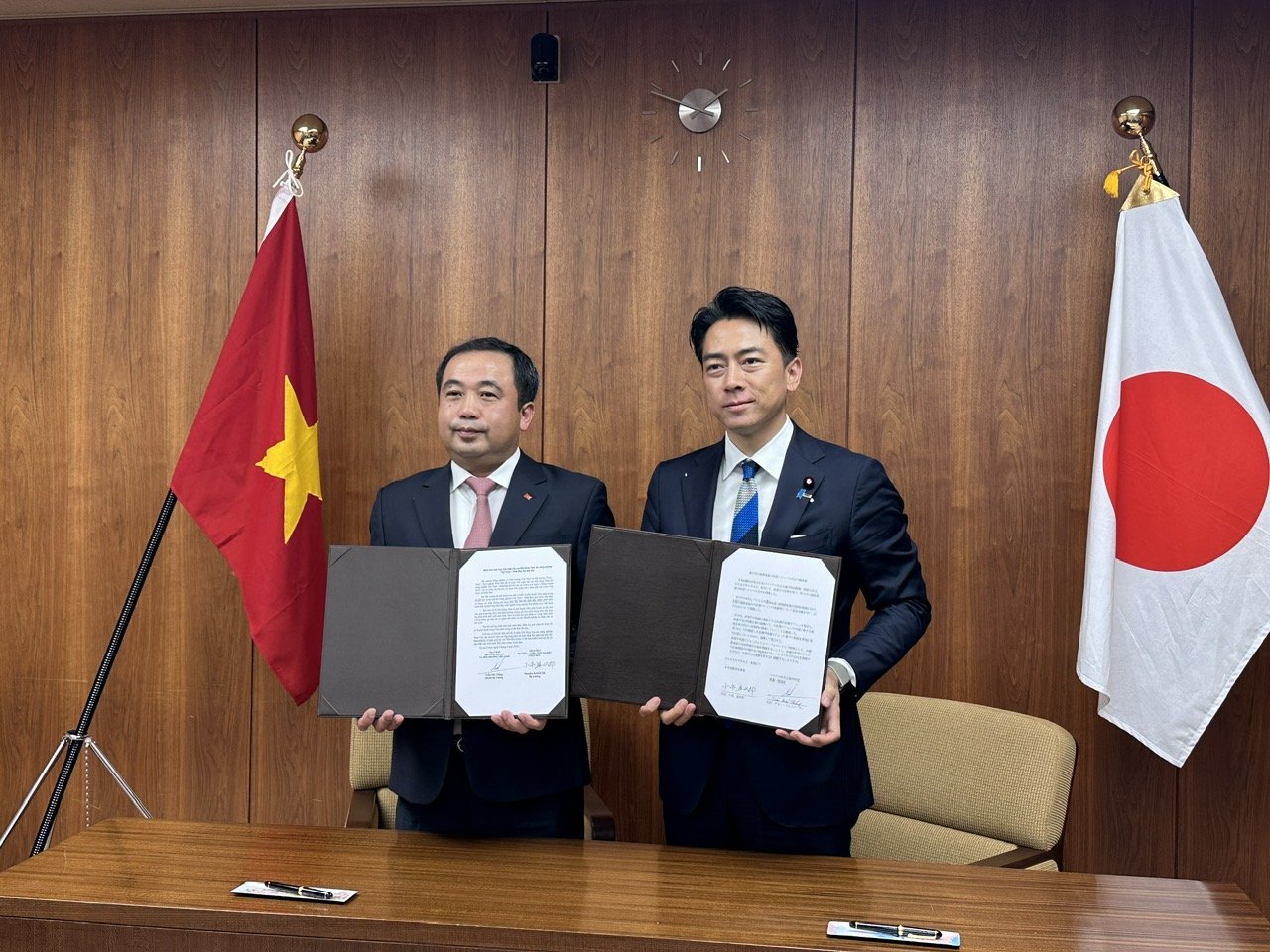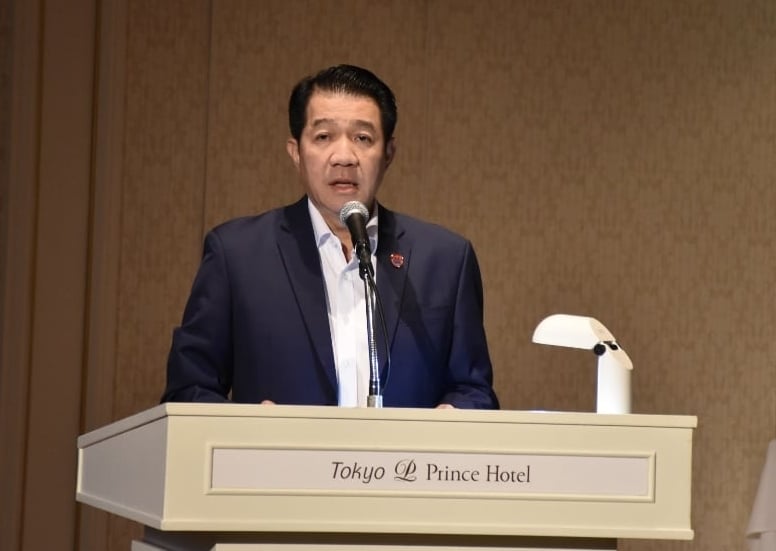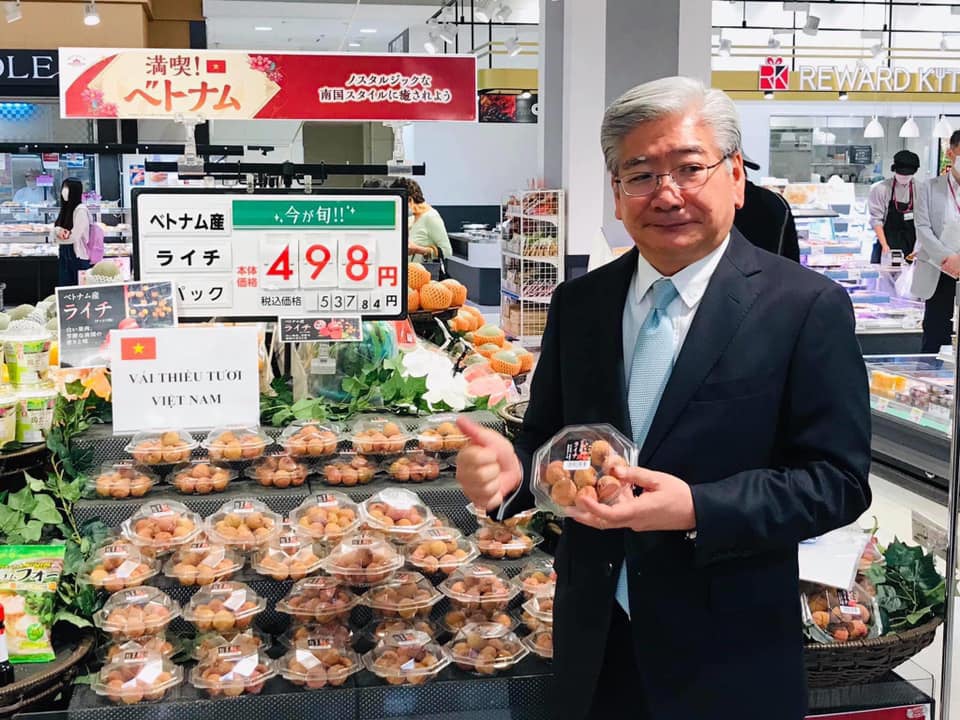December 11, 2025 | 21:37 GMT +7
December 11, 2025 | 21:37 GMT +7
Hotline: 0913.378.918
December 11, 2025 | 21:37 GMT +7
Hotline: 0913.378.918
On September 4, in Tokyo, the 6th Vietnam - Japan High-Level Agricultural Cooperation Dialogue took place. At the meeting, Acting Minister Tran Duc Thang of Vietnam’s Ministry of Agriculture and Environment and Minister Koizumi Shinjiro of Japan’s Ministry of Agriculture, Forestry and Fisheries exchanged views on cooperation initiatives and future directions in agriculture, forestry, and fisheries between the two countries, while also approving the Medium- to Long-Term Vision for Vietnam–Japan Agricultural Cooperation (Phase 3).
Over the past 10 years, Vietnam–Japan agricultural cooperation through Phase 1 (2015–2019) and Phase 2 (2020–2024) of the Vision has achieved significant results. Both sides have developed agricultural value chain models, built agricultural, irrigation, and processing infrastructure, promoted private investment, transferred technology, trained human resources, and improved agricultural policies.
As a result, trade in agricultural, forestry, and fishery products has grown steadily, from USD 3.02 billion in 2015 to USD 4.9 billion in 2024, with an average annual increase of 6%. The product structures complement each other and are supported by key FTAs such as VJEPA, CPTPP, and RCEP. This provides an important foundation for entering the new phase of cooperation.

Overview of the 6th Vietnam–Japan High-Level Agricultural Cooperation Dialogue. Photo: ICD.
The Vietnamese side emphasized that Japan is not only a key strategic partner that provides capital and technology but also offers valuable management experience and effective public-private partnership models. Programs under the Medium- to Long-Term Vision have laid the foundation for Vietnam’s agricultural value chains, helping to improve product quality, expand export markets, and gradually move toward green and sustainable goals.
To maximize both sides' potential, Vietnam’s Ministry of Agriculture and Environment proposed that Japan open its market to more Vietnamese agricultural and aquatic products, such as pomelo, passion fruit, and catfish. In addition, it actively encouraged promoting scientific and technological cooperation in areas such as seed research, biotechnology, post-harvest preservation, and the transfer of modern technologies like IoT, AI, and blockchain.
“I hope Japan will support training and the exchange of experts to enhance the management capacity of cooperatives and ensure food safety. In the field of infrastructure and logistics, we can collaborate to promote mechanization, develop smart logistics and cold chains, build agricultural–environmental data centers, and expand public–private partnership models in fisheries and agriculture. Additionally, enterprises from both countries should strengthen production linkages and invest in food security,” the Acting Minister stated.

Acting Minister Tran Duc Thang and Minister Koizumi approve the Medium- to Long-Term Vision for Vietnam–Japan Agricultural Cooperation (Phase 3). Photo: ICD.
Minister Koizumi praised the strong cooperative relationship between Vietnam and Japan and expressed his hope that both sides will continue to promote deeper collaboration in agriculture. On this occasion, he invited Vietnam to participate in the 2027 World Gardening Expo in Yokohama (Green EXPO Yokohama 2027) and proposed accelerating the market-opening process for certain agricultural and aquatic products, including pomelo, grapes, and fugu.

Mr. Vu Manh Hung, Chairman of the Board and CEO of Hung Nhon Group, speaks at the conference. Photo: ICD.
According to Mr. Vu Manh Hung, Chairman of the Board and CEO of Hung Nhon Group, the Japanese market not only demands high standards of food safety and hygiene but also emphasizes values such as traceability, animal welfare, and sustainable development. These are standards that Hung Nhon Group is continually striving to meet and exceed.
To realize the vision of sustainable livestock development cooperation, Hung Nhon’s leadership hopes for bilateral collaboration in biotechnology, including research partnerships and the application of biotechnology, automation, and digitalization in livestock farming. Both sides could also cooperate on environmental management in livestock, recycling agricultural by-products, developing transparent quality control and traceability systems, and promoting animal welfare while minimizing climate impact.
“With the support of the governments of both countries, especially ministries such as Vietnam’s Ministry of Agriculture and Environment and Japan’s Ministry of Agriculture, Forestry and Fisheries, private enterprises like ours will have the opportunity to realize strategic and long-term cooperative goals,” he emphasized.

Vietnamese agricultural products are popular in Japan. Photo: VGP.
Aiming to boost trade growth between the two countries, Dong Giao Export Food Joint Stock Company (Doveco) expressed its desire to expand close cooperation with the Japanese business community.
“We value every opportunity for collaboration, from large corporations to small and medium-sized enterprises, in areas such as distribution, processing, market research, and product development. Strong business partnerships between the two countries not only expand markets but also create tangible value, contributing to the sustainable development and shared prosperity of the Vietnam–Japan agricultural sector,” shared Mr. Dinh Cao Khue, Chairman of Doveco’s Board of Directors.
The Medium- to Long-Term Vision for Vietnam–Japan Agricultural Cooperation (Phase 3), starting in 2025, will not only continue implementing the solutions from Phase 2 but also promote new initiatives based on Japan–ASEAN Green Cooperation Plan (Midori Plan), while consolidating and enhancing the activities of the Export Support Platform.
Translated by Phuong Linh

(VAN) The Sustainable Agricultural and Forestry Production Development Support Project in Angola is key to both advancing sustainable development and guaranteeing national food security.

(VAN) According to Deputy Minister Nam, women are as capable as anyone when granted the opportunity to experiment and innovate.

(VAN) Dr. Fred Unger, former Regional Representative of ILRI in Asia, is honored as a pioneering expert who helped establish Viet Nam’s One Health and risk-based approaches in food safety.

(VAN) By joining the carbon market, Hoang Lien National Park can reinvest revenues into conservation and improving community livelihoods.

(VAN) Bach Ma National Park will continue to conserve biodiversity in ASEAN, aligned with sustainable agriculture and environmental development goals.

(VAN) Pu Mat National Park is a green gem of Nghe An province, and its value is further elevated after being officially recognized as an ASEAN Heritage Park.

(VAN) EU expects Viet Nam to seize the chance and comply with green standards to make strong breakthroughs in exporting high-quality agricultural products.